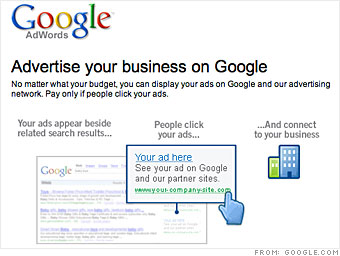The would-be entrepreneur's handbook
The last day of a recession is the best day to start a business, the saying goes. So tackle the 10 steps in this guide now - and be ready to ride the rebound when it comes.

Focus on the message. You don't need a flashy site, says Derek Gehl, CEO of Internet Marketing Center, a small business training firm. "Instead, write sales copy that converts visitors to buyers." State clearly and concisely on the home page the benefits of your service or product. See what keywords people might search (use adwords.google.com/select/KeywordToolExternal) and work them into your copy.
Use testimonials. No customer base yet? Consider giving targeted groups of people your product for free in exchange for their reviews.
Drive people to your site. Get bloggers to link to you. Also, sign up for Google AdWords (adwords.google.com), "which helps your ads pop up along similarly named search results," says Cullinane. You pay per customer click, and you set a daily budget.
DON'T...
Forget why people have come. More than 50% of online sales are lost when customers can't figure out how to buy the product or service, according to research firm Gartner Inc. If you're selling online, put a "buy now" button on the home page and list a customer service number.
Let customers go. It's cheaper and more effective to market to previous buyers. Make sure you have a way to get contact info from even those first customers, Gehl suggests. That way you can start building the customer base that will make your start-up a success.
Additional Reporting by Alexis Jeffries contributed to this article.
More galleries
Last updated January 12 2009: 5:30 AM ET

